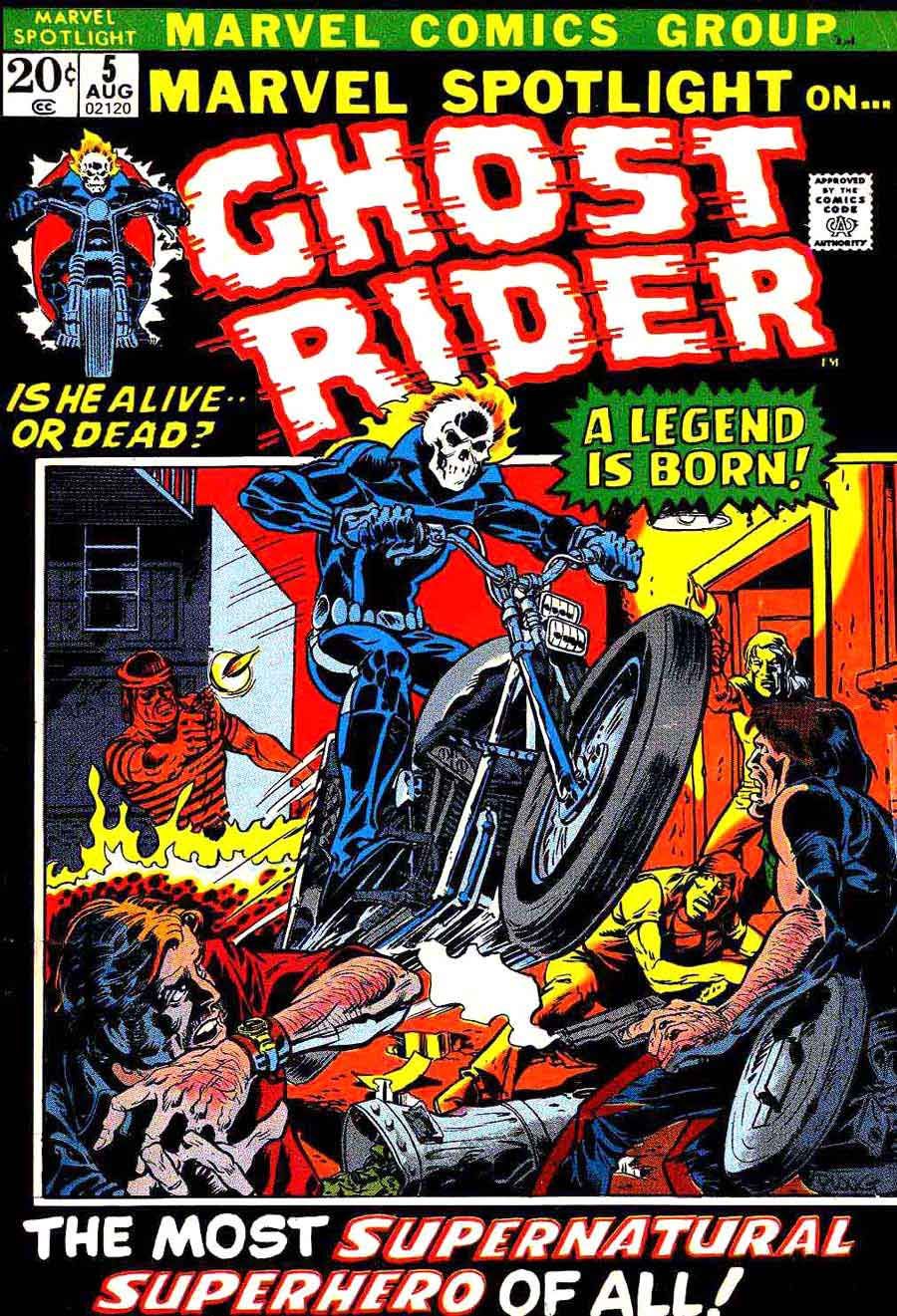Ghost Rider co-creator Gary Friedrich has appealed a December 2011 court ruling that he gave up all claims to the fiery spirit of vengeance when he endorsed checks from Marvel's predecessor 40 years ago.
The writer filed a lawsuit in April 2007, shortly after the release of Columbia Pictures’ Ghost Rider movie, accusing the studio, Marvel, Hasbro and other companies of copyright infringement, false advertising and unfair competition, among other counts, contending he had regained the copyright to the character some six years earlier. Friedrich argued he created Johnny Blaze/Ghost Rider in 1968 and later agreed to publish the character through Magazine Management, which eventually became Marvel Entertainment. Under the agreement, the publisher held the copyright to the character’s origin story in 1972′s Marvel Spotlight #5, and to subsequent Ghost Rider works. However, Friedrich alleged the company never registered the work with the U.S. Copyright Office, permitting the rights to revert to him in 2001.
Marvel fired back in 2010, accusing Friedrich of violating its trademark by using the phrase “Ghost Rider” and selling unauthorized posters, cards and T-shirts online and at comic conventions. In December 2011, a federal judge rejected Friedrich's lawsuit, finding the writer gave up ownership to the property when he endorsed checks that contained language relinquishing rights to Marvel’s predecessors. The judge said Friedrich signed over all claims to the character in 1971 and again in 1978 in exchange for the possibility of more freelance work for the publisher. Two months later, Marvel agreed to abandon its countersuit if Friedrich would pay $17,000 in damages and stop selling unauthorized Ghost Rider merchandise, a move that drew sharp criticism from creators and fans alike.
But Daniel Best now reports Friedrich filed an appeal earlier this month with the 2nd Circuit, arguing most notably that U.S. District Judge Katherine Forrest erred when she ruled the language on the back of Marvel paychecks in the earlier 1970s and in the 1978 freelance contract -- both loom large in any discussion of creator rights in that era -- were sufficient to constitute a transfer of copyright. Friedrich quibbles with the language of the standard 1978 agreement, in which a creator granted to Marvel "forever" all rights to a work and agreed "not to contest Marvel's exclusive, complete and unrestricted ownership." More importantly, however, his attorney reasserts the claim that the agreement was entered into under duress, with Friedrich told "if I wanted to continue to work for Marvel that I would have to sign it."
Best, who posts Friedrich's opening brief, also notes what he views as a potential oversight in the case: When Friedrich was deposed, he was asked whether he was aware of any other freelance writer working for Marvel between 1971 and 1978 who owned the rights to any of the characters or stories. While he replied no, but Best points out that the 1978 Silver Surfer graphic novel lists Stan Lee and Jack Kirby as the copyright holders (a scan of the page appears on his website). However, that seems as if it could be easily explained as typographical or clerical error made by Simon & Schuster, which actually published the book. (In fact, the paragraph beneath specifies "this book is based on material copyrighted by Marvel in which all rights are reserved.")


